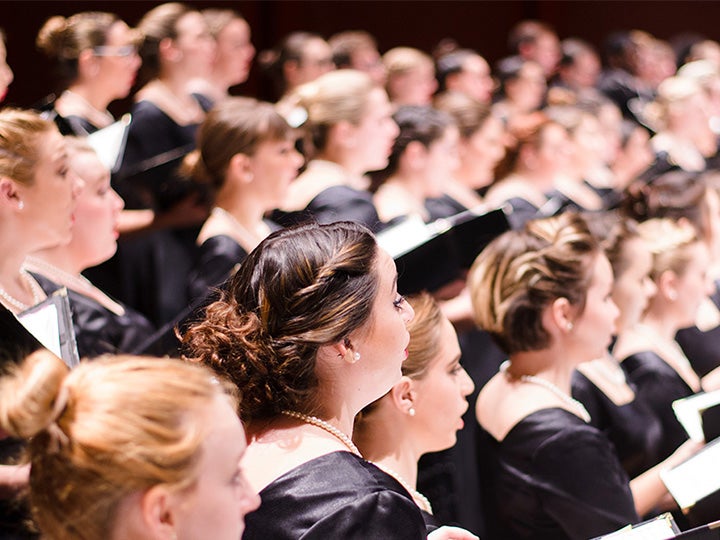The Perpetual Appeal of Handel’s Messiah
“The most loved of all classical works with voices and, indeed, one the most loved of all compositions.”
– Michael Steinberg, music scholar and former program annotator for the San Francisco Symphony and New York Philharmonic, on Handel’s Messiah
There are many Baroque choral masterworks, so the perpetual appeal of Handel’s beloved Messiah may initially be puzzling. The wonder of the great scriptures has been told many times through music; what makes this particular musical retelling so captivating to the masses? There are several considerations that could help us understand why this work rose to the top and has remained there.
For one, Handel arrived at this work with a dense amount of experience and material. His tenure for composing operas had just reached its successful finale, and that momentum carried over into his oratorios, which Handel treated essentially as a sister form of opera. He had developed a mastery of musical storytelling, and he was able to imbue Messiah with the attention-grabbing drama of Italian opera.
Just as powerful is Handel’s dissemination of text, which is quite unique, even compared to Handel’s other 20-plus oratorios. Rather than taking the typical approach—using consecutive events to convey a parable—Handel relays a collection of extended quotations from the Bible. They illuminate the ideals of the text, proclaiming protection, comfort and peace from a redemptive faith.
Although Handel composed Messiah in an astonishing three and a half weeks, the work was in a constant state of renewal for him. For more than 10 years, Handel reworked the score frequently. The amount of time he spent with his completed masterpiece informed him of every nuance, every developing pattern at play. Handel combed over any unsmooth texture or problematic vocal writing multiple times, giving him ample opportunity to craft a total cohesion of the choral, vocal and instrumental elements. This treatment gave birth to an oratorio unlike anything Handel had composed before or ever would again.
It is Handel’s direct relaying of each passage as an influential statement (think of it as our modern-day “inspirational quotes”) and his inclusion of dramatic moral direction that one might hear in a passion play, combined with his enduring, immediately pleasing music that makes Messiah so captivating. Handel had a simple gift of being able to “tell it like it is” in musical terms. His well-grounded music resonates with so much honesty that we can’t help but trust the sound almost immediately and welcome it in as an old friend.
Experience this masterwork with the NJSO, Montclair State University Singers and a quartet of vocal soloists, December 14 and 16.
Related:
Behind the Scenes with the Montclair State University Singers
Handel’s Messiah
2018–19 Season
PATRICK DUPRÉ QUIGLEY conductor
MARGOT ROOD soprano
REGINALD MOBLEY countertenor
STEVEN SOPH tenor
CHARLES WESLEY EVANS baritone
MONTCLAIR STATE UNIVERSITY SINGERS
Heather J. Buchanan, conductor
Members of the NEW JERSEY SYMPHONY ORCHESTRA
